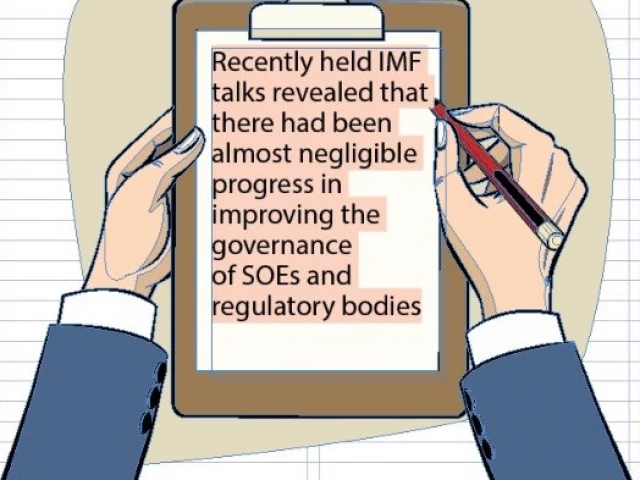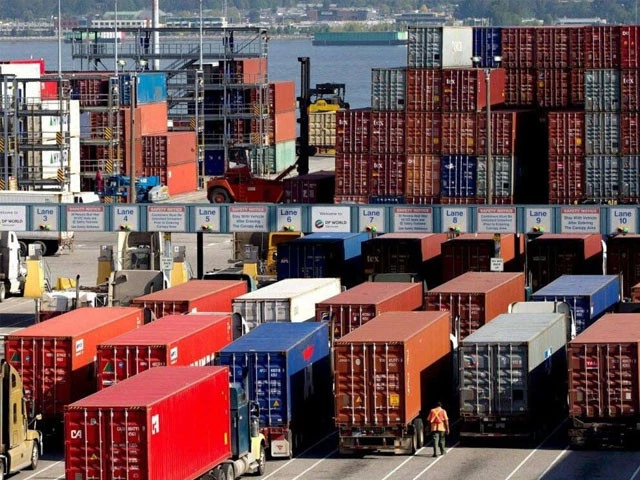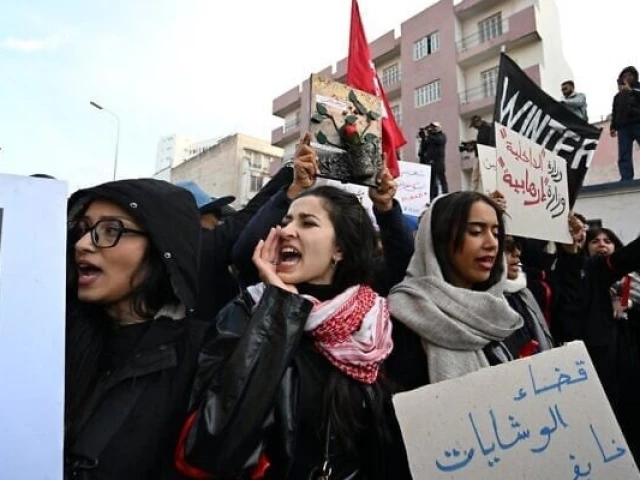State-Owned Enterprises and the IMF: A Struggle for Reform in Pakistan
As the first year of Pakistan’s $7 billion International Monetary Fund (IMF) program draws to a close, we’re seeing a significant gap between promises and performance. The government has struggled to bring state-owned enterprises (SOEs) under a new legal framework, a key commitment that’s crucial for achieving long-term economic stability.
A recent preparatory meeting for the upcoming IMF review highlighted this lack of progress. The finance ministry sources revealed that major public sector firms like Wapda, Pakistan Telecommunication Corporation, and Pakistan Railways are resisting necessary changes. Instead of cooperating, these entities are dragging their feet on amending laws that would separate policymaking from operational tasks.
When the IMF board approved the bailout package last year, there was palpable optimism. The government, led by Prime Minister Shehbaz Sharif, promised a revamp of the SOE legal frameworks to introduce international best practices aimed at reducing losses and improving service delivery. Unfortunately, these reforms have remained largely unaddressed.
Due to ineffective governance, not only has the operational structure of SOEs remained unchanged, but privatization efforts have also stalled. Out of the committed $7 billion, Pakistan has only received $2 billion so far, with fiscal stability being the sole bright spot amid rising public debt. In the past fiscal year, Pakistan’s debt-to-GDP ratio climbed above 70%, tipping the scales at an alarming Rs80.5 trillion.
The IMF has been clear about the need for SOE reforms and has outlined expectations for the extension of the State-Owned Enterprises (Governance and Operations) Act and the SOEs (Ownership and Management) Policy to ten additional entities. These include critical institutions like the National Bank of Pakistan and the Karachi Port Trust. Despite this clarity, progress has been sluggish.
Finance Minister Muhammad Aurangzeb has recently reached out to fellow ministers, urging them to meet the IMF’s requirements before its delegation’s next visit to Pakistan, scheduled for September 25. However, only the draft bill for the Exim Bank has been finalized. Amendments to the NBP Act remain pending, as they are tied to legal changes concerning the Pakistan Sovereign Wealth Fund Act.
In a twist of irony, while the Wapda has shown reluctance in sharing its requisite amendments, critical legal reforms in other entities like the Ministry of Information Technology are still under discussion. The lack of urgency and cooperation from these state-run enterprises poses a real challenge to securing the next tranche of the IMF loan.
As we navigate these complex issues, it’s clear that reforming SOEs is not just a government responsibility; it’s a national necessity. Addressing these governance challenges could lead to enhanced transparency and improved performance, which would ultimately benefit the economy and the citizens of Pakistan.
By keeping a close eye on the situation and fostering collaborative discussions, we can hope for a more sustainable future. For those interested in staying updated or diving deeper into these topics, engaging with platforms like Pro21st can provide valuable insights and connection opportunities. Together, we can keep pressing for meaningful reform!





